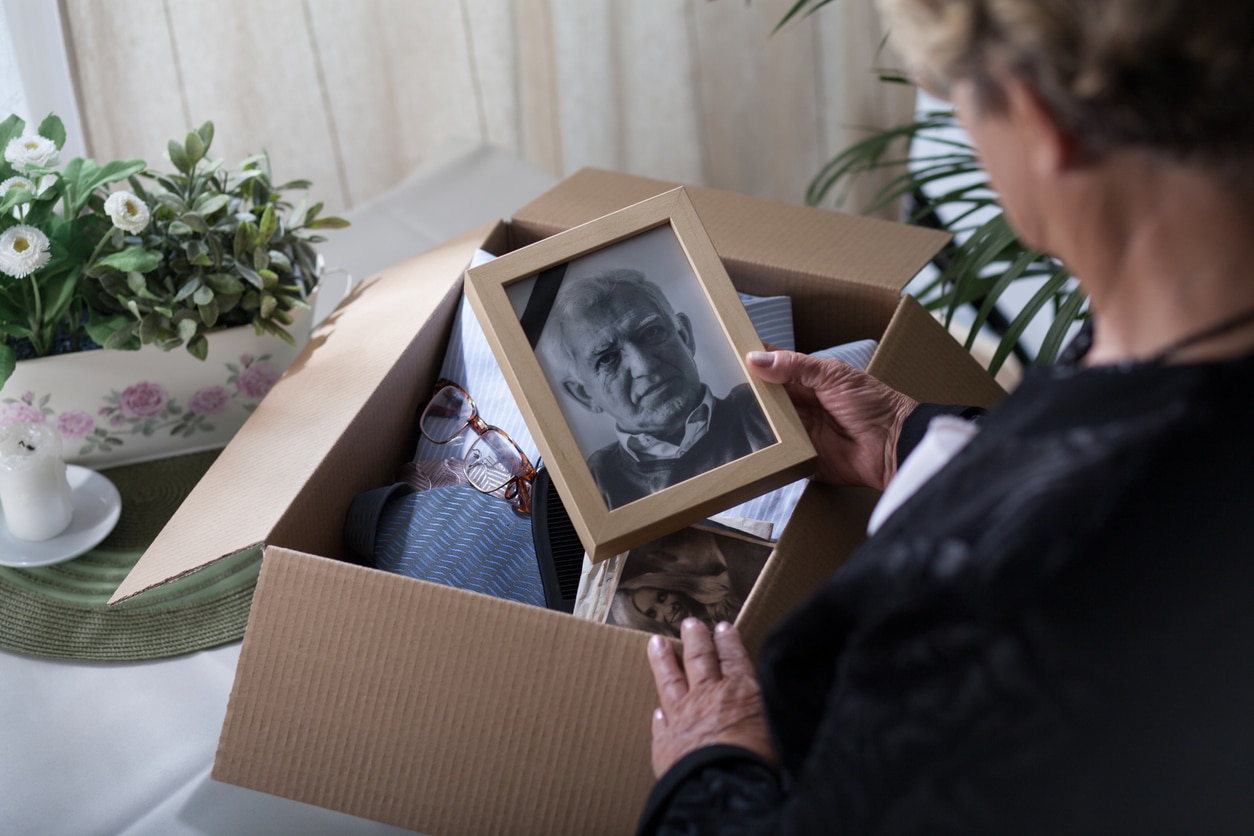There can be a lot of mystery and confusion surrounding death because we have become a society that has been mostly shielded from death and the dying process. We have professionals who handle medical needs and help relieve pain. We have access to emotional support professionals who have been trained to know just what to say at the right time. This has allowed most of us to avoid talking about death, which can sometimes be messy and uncomfortable. When we spend our lives circumventing something, it’s easy to see how we are not prepared to know what to say when someone is dying or how to support them when they need it the most.
So, what happens when someone you love or care for is facing death? You’ve been a support to them through many things, but how do you negotiate this? Sometimes people can be quick to say things to try and comfort someone who is dying without first understanding what type of response would be of value to them. It can also seem impossible to know what to say or do for their family member who is simultaneously grieving this journey and the imminent loss of someone they love.
You don’t have to know first-hand another person’s pain to empathize and offer support.
Death happens because we have the gift of life, and it is the conclusion for all of us. In that way, our journey is not entirely unique. The timeline and circumstances are different for everyone, but the ending is the same. It is good to find comfort in this and let it help you know how to speak to others who are going through it differently than you. We’re all on this journey together. Think about the things that have been helpful to you in your greatest times of pain, need, fear, and struggle.
It is a healthy part of life to contemplate death and your own mortality. Death is an experience that we will all eventually share – let that guide you in what you say and how you respond. The sooner that you’re able to embrace this part of your reality, the greater the chance that you will have the right words to comfort another person as they are facing their own end of life.
Never be too quick to try and fix it with words
Think Before You Speak

One of my favorite quotes is, “The greatest gift you can give someone is your time because it is something that you can never get back.” When a person is grieving or even in despair, remember that for them, answering simple questions can be painful, if not impossible. When my mom passed away, my dad and I spent some time talking about some of the interactions he had shortly after. One person approached him and sympathetically asked, “How are you doing?” That question alone seemed impossible to answer. He really didn’t know how to respond. When you think about it, he wasn’t doing good. He felt disoriented, sad, lonely…everything around him was a trigger because the loss of his wife was so recent and painfully tangible. When you’re in that part of grief, answering questions, even simple ones, is hard. What can you do instead?
- Offer a hug
- Say I love you
- Engage without asking a question that requires a response
- Be willing to listen when they talk
You may be surprised to find that they will share more if they feel comfortable and compelled. You have already created an opportunity by showing up and giving them the gift of your time.
Death can be a lonely process. Be willing to sacrifice your time to be a part of someone else’s journey.
As I shared above, I recently lost my mom. Her dying process was one of the greatest gifts of my life. Why? It taught me that what she really craved most was my presence and my time. I didn’t always need to know exactly what to say or do. Stopping all the other busyness of my life and sitting with her was truly what she needed more than anything. When she first began hospice care, we anticipated it to be a relatively quick process, which turned into months. There were many days that she was at home feeling isolated from the life she once had, and she was lonely. Just being there quite literally meant the most and was the best thing I could do for her. I’m certain that the same is true for most people you know, so when the time comes for you to respond, you’ll know exactly what you can do.
“If there’s anything I can do….”
We often hear people say, “If there’s anything I can do, let me know…”. When the BEST thing to do is to know in your heart that there IS something you can do, so just do it without them having to ask. Don’t put that burden on the other person when it is within your ability to know what to do and do it. Giving your time, sending a gift, writing a card, sitting with them, listening to them…will ALWAYS be the right thing to do.

Words are a gift, and knowing the right thing to say at the right time can bring incredible comfort and hope to a dying person.
Just as a parent will adjust their parenting tactics and techniques for each of their children, every person experiencing death or the dying process needs something different. Work to understand them as a person before determining what you’d like to say. Ask yourself the following:
- Do they enjoy humor and lightheartedness?
- Are they in physical pain?
- Are they scared, or are they hopeful?
- Are they intellectual and appreciate philosophical engagement?
- Do they have a spiritual foundation and cherish scripture?
Eventually, you’ll create your own list; these are just some points to get you thinking about it. Planning now for how you can best support someone else through their death and the dying process will significantly increase the likelihood that you will know what to say when needed. That when you come to this difficult time, you can have open conversations and not worry about saying the wrong thing.
Humor Response
If you know a person well enough to realize that they have approached life with humor and lightheartedness, that will give you a bit of insight into the type of response that would be good and supportive for them. I was very close to my mom, and we talked about death and dying a lot. This meant that there wasn’t anything that was necessarily off-limits to say. We often made lighthearted remarks or jokes about death. It was our way of relieving stress and coping with her dying process. I knew that it was safe to use humor with her because that was the type of relationship we had.
How To Respond When Someone Is In Physical Pain As Part Of Their Dying Process
If a person is dying and they’re having trouble managing physical pain, then this will be a time to be sensitive and empathetic in a completely different way. Words of hope and reassurance are important. It’s not a good idea to try and offer solutions or alternative approaches to pain relief unless you’re being asked. The important thing is to remember that most people have a professional care team who knows the situation intimately and are providing the best care possible. Also, remember that when a person is in physical pain, certain things like loud voices, sounds, or music can be overstimulating. It’s important to do a bit of investigation before determining your best responses.
Fear vs. Hope
Not every person is confident in life after death. Not everyone is given the opportunity to have a long, healthy life where they’ve been able to settle these things in their mind before facing death. If you have faith, spend time planning how to offer comfort to another person who is dying and possibly unsure. How can you do that without being pushy or overwhelming? How can your faith speak through you without using a lot of words or being demanding? Perhaps you can offer music or scripture that would be encouraging. Most of all, your genuine love and sincerity are what will shine through the conversation, words, and support that you have to offer.
What can you learn from someone who is at the end of their life journey?

Death is not a time for fear. When we agree and acknowledge that we’re doing this together, it becomes a time for each one of us to embrace what we can learn by loving and supporting someone else on that part of their journey. Remember that they also have something crucial to offer you: a perspective you do not yet have.
When I knew that I had just a handful of days left with my mom, I prayed that in the end, I could be there when she took her last breath. I wanted to witness what she realized in that last moment on earth. I wanted to see what she saw through her eyes, if that was even possible.
The more I found comfort in being a part of my mom’s dying process, the more I have been able to understand and empathize with others. When you more fully immerse yourself in this normal part of life, it now seems possible to know what another person might need and be certain of what to say when someone else is further along their life (or death) journey than you might be on yours.
Read Next:







